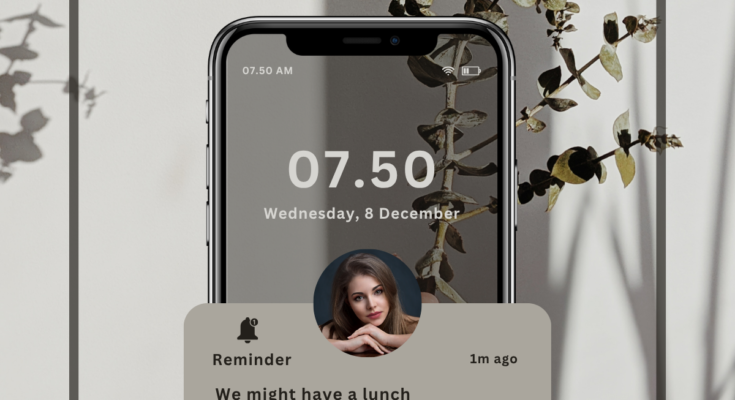What looks like a love note… might actually be a cry for help.
What reads like a sarcastic roast… might be someone’s only safe way to speak the truth.
Welcome to Gen Z’s secret world of anonymous messages. It’s weird, it’s wild, and it’s rewriting the rules of online intimacy.
The Digital Glitch in Every ‘Seen’ Message
We live in a time where everything is visible, likes, follows, receipts, typing dots.
And yet, the real feelings? Carefully hidden.
That’s why anonymous platforms like SecretNote.me are quietly going viral.
Because sometimes, the only way to say something real… is to say it without your name.
Flirting or Fear? Why the Line’s Getting Blurry
You send an anonymous “I like your playlist.”
Is it a crush? A compliment? A dare?
You receive a message saying “You were amazing in class today.”
Is it admiration, or someone finally feeling safe enough to speak?
Here’s the thing: anonymity doesn’t blur the line between flirting and fear. It reveals how blurry that line already was.
One emotion, two directions:
- Flirting is often driven by curiosity, attraction, mischief.
- Fear is driven by uncertainty, anxiety, emotional safety.
But both ask the same question: What happens if I reveal myself?
In that sense, anonymous platforms are not just about secrets, they’re about safety.
SecretNote Is the Modern Confession Booth (Without the Judgement)
Before, it was diaries and late-night calls. Now, it’s anonymous links in bios, Instagram stories with SecretNote replies, and 2AM notes that vanish in minutes.
Platforms like SecretNote.me make this kind of interaction frictionless:
- No sign-up friction, just drop a note
- Auto-delete ensures no trace lingers
- End-to-end encryption protects even the messiest thoughts
In other words, it’s designed for raw honesty in a world of polished lies.
Why Gen Z Is Obsessed with Anonymity Again
Weird how the generation most comfortable with face filters and TikTok dance trends is also the one turning to anonymous messages. Or maybe not.
Because anonymity isn’t about hiding.
It’s about revealing without consequences.
Three reasons this trend is exploding:
- Too much signal, not enough truth.
When every message is polished, ironic, or performative, anonymous notes feel refreshingly real. - Mental health is finally a public conversation.
Sometimes, asking “Are you okay?” is easier when names are off the table. - Flirting is scarier than ever.
DMs feel risky. Screenshots get shared. But an anonymous “Hey, you looked nice today”? That lands.
The Rise of the ‘Lurker Crush’
We’ve all seen it:
“Guess who has a crush on you?”
“I’ve liked you since orientation week.”
“Your voice is really calming.”
These messages don’t come with names. But they do come with impact.
Because sometimes, you don’t need to know who sent it. You just need to know someone noticed.
Anonymity Isn’t the Problem. Misuse Is.
Let’s be real, every generation has its version of the anonymous note.
In school notebooks. On bathroom walls. In Orkut testimonials.
Anonymous doesn’t create toxicity. It reveals where people are already hurting.
The real problem isn’t the tool.
It’s how we use it.
So how are platforms like SecretNote solving for this?
- AI filters and moderation tools to flag harmful content
- User-controlled expiration of notes to reduce emotional weight
- Zero data trails to discourage misuse
In short: anonymity with boundaries. Honesty with protection.
From Confession Culture to Curiosity Culture
This isn’t just about secrets.
It’s about curiosity without consequence.
Someone sends “Your smile is contagious.” Do you need to know who?
Or is it enough that someone noticed?
Platforms like SecretNote aren’t just feeding gossip. They’re feeding connection.
And in a world that often feels algorithmically distant, even one honest message can remind you: you’re seen.
The Flip Side: When Anonymity Feeds Anxiety
Of course, not all anonymous messages land like compliments.
Some trigger spirals. Some feel passive-aggressive. Some open emotional doors we weren’t ready to walk through.
So how do we make sense of that?
Here are three ways Gen Z is navigating anonymous chaos:
- Creating boundaries – Many now set clear instructions: “Nice messages only,” or “No trauma dumps pls.”
- Using it for self-reflection – Some treat notes as emotional mirrors. Not gospel, but signals.
- Turning off notifications – The healthiest flex? You control the volume.
Because anonymity is power.
But only when you’re the one holding the mic.
A New Kind of Vulnerability is Trending
Real talk: vulnerability used to mean crying in front of someone.
Now it looks like…
- Leaving a question box open
- Replying “thank you <3” to a nameless compliment
- Telling your story without telling your name
It’s not less brave.
Just differently brave.
So What Does This Mean for the Rest of Us?
It means communication is evolving.
Where traditional messaging was about identity, anonymous messaging is about intention.
It asks: What do you want to say when your name isn’t attached?
And sometimes, that’s when we say what really matters.
How SecretNote.me Fits In
Let’s not pretend this trend is accidental.
SecretNote was designed for this moment:
- To give people a space where the message matters more than the messenger
- To let emotions breathe without judgment
- To offer a safe zone for confessions, compliments, clarifications, or just chaotic curiosity
From encrypted notes to auto-delete timers, everything about SecretNote is built with intention-first communication in mind.
Final Thought: We’re Not Hiding. We’re Reaching.
When Gen Z plays with anonymity, it’s not because they’re afraid.
It’s because they want to express without overexposing.
Because the internet’s gotten loud. Labels are everywhere. And sometimes, the only way to be honest… is to be invisible.
And maybe that’s not a glitch.
Maybe it’s the new intimacy.
P.S.
Want to try it yourself? Drop an anonymous message at SecretNote.me, you might just say what you’ve been holding back.



